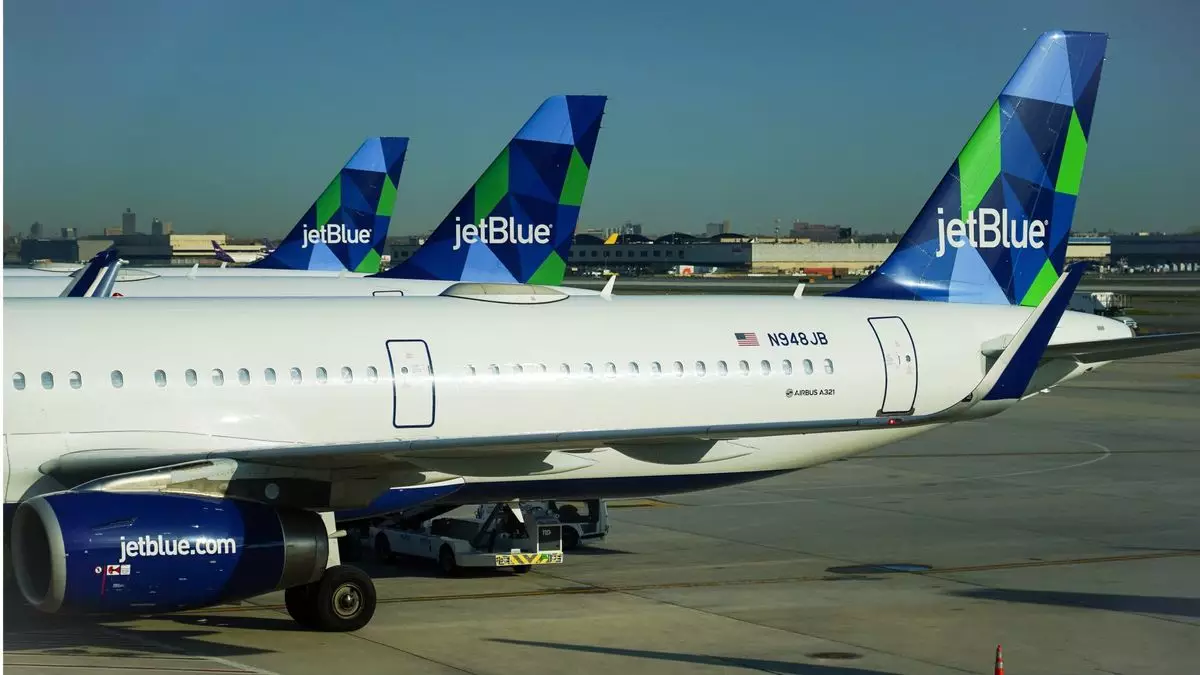In a decision that marks a significant moment in airline regulatory history, the U.S. Department of Transportation (DOT) has imposed a hefty $2 million fine on JetBlue Airways for consistently delayed flights. This penalty is the first of its kind, as the DOT examines more closely the impact of airline scheduling practices on punctuality. The fine was triggered by the airline’s chronic delays on specific routes, where flights were tardy for over 30 minutes more than half the time during defined periods. This ruling highlights a growing concern about airlines’ operational reliability and how they manage their schedules amidst external challenges.
The flights that led to JetBlue’s penalties primarily connect major cities in the Northeast and Florida, areas notorious for tricky air traffic conditions. JetBlue has argued that it invests significantly in technology and operational improvements, spending tens of millions in recent years. However, the airline attributes many delays to external factors, specifically air traffic control (ATC) staffing shortages that plague the Northeast region and Florida. JetBlue posits that the U.S. air traffic system requires modernization, urging policymakers to prioritize upgrading technology and addressing staffing issues in ATC, which could alleviate much of the congestion leading to delays.
JetBlue’s decision to settle and pay the fine rather than engage in a lengthy and potentially costly legal battle speaks volumes about the airline’s strategic considerations. The settlement includes a split allocation: $1 million directly to the U.S. Treasury and another million earmarked for customer compensation for severe delays and cancellations attributed to the airline’s responsibilities. This indicates a proactive approach to maintaining customer relations and mitigating reputational damage. The commitment to reimburse affected customers highlights JetBlue’s recognition of their responsibility in providing timely service.
Chronic Delays and Market Implications
The routes involved in the fine showcase particularly concerning performance, including flights from New York to Raleigh-Durham and Fort Lauderdale, which suffered from chronic delays. According to reports, these service issues persisted for months, prompting mounting frustration among customers and scrutiny from regulators. The ongoing investigations into the scheduling practices of other airlines suggest a potential shift in how the DOT may enforce regulations against operational unfairness across the industry, potentially reshaping competitive practices and customer expectations.
JetBlue has historically struggled with on-time performance, consistently ranking low among major U.S. carriers. In the latest rankings, the airline achieved only a 74.5% on-time rate, which pales in comparison to industry leaders. Notably, JetBlue’s recent performance reflects some improvements from 2023, which also saw significant delays, representing a crucial period of adjustment for the airline. The complexities of operating within congested airspace and the acute shortage of air traffic controllers complicate JetBlue’s ability to optimize its flight schedules, demonstrating broader challenges affecting the airline industry as a whole.
The Future: Addressing Industry Challenges
Looking forward, the airline industry faces crucial challenges that could reshape operational strategies. The FAA’s recent hiring initiatives aim to address the air traffic controller shortfall, which is essential for ensuring safety and efficiency in air travel. As more personnel are onboarded, it may gradually alleviate pressures that have historically plagued busy air corridors. However, as indicated by JetBlue’s experience, airlines must also take responsibility for their operational policies and prioritize punctuality in their customer service commitments.
The actions taken against JetBlue are more than just a financial punishment; they signal a serious commitment by regulatory bodies to address airline accountability. As the industry evolves, both airlines and regulators must collaborate to create a system that benefits airlines, passengers, and the broader market, ensuring a reliable and timely travel experience in the future.

